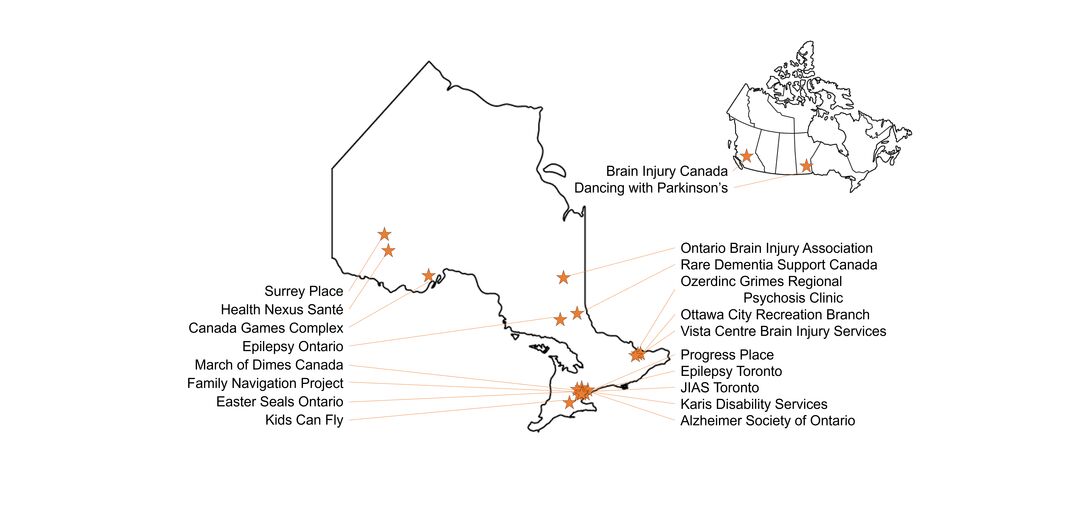Why does OBI invest in evaluation capacity building?
Building evaluation capacity in community-based organizations is key to generating evidence for program learning, improvement and impact, thereby aligning program delivery to address care needs.
We believe that through the GEEK program, participants gain hands-on experience, learning by doing to effectively apply evaluation knowledge to their programs. This approach improves evidence generation and fosters organizational evaluation practices.
Why is it important to build evaluation capacity in community-based organizations?
Organizations with a high level of evaluation capacity conduct timely and high-quality evaluation studies, integrate evaluation findings into decision-making processes, and foster an evaluative culture rooted in organizational learning principles.

Since 2019, OBI has invested $2.5 million in 20 community organizations.
Hear what past recipients have to say
GEEK enables community organizations to assess their programs, gather evidence for learning and improvement, and communicate their impact, leading to increased program success. Through improved evaluation capacity, GEEK enhances program design, delivery, and quality, ultimately benefiting clients.
For instance, GEEK supported one of the recipients, JIAS Toronto, in adopting a more methodical and evidence-based program development approach, which they wouldn't have pursued without external evaluator support and GEEK funding.
The biggest takeaway was being more consistent about using evaluation. We didn't have a systematic way of doing that every time. And now we have an internal evaluation person. I think having evaluators there taught us to mindful about the group size, communication, expectations and to be very honest about the limitations of the program, what can or can't be offered.
— JIAS Toronto’s Mental Health Supportive Initiatives Program
Addressing evaluation capacity also contributes to fostering a culture of evaluation and continuous quality improvement. Another GEEK recipient, Surrey Place’s Aging & Intellectual and Developmental Disabilities (IDD) Education Program, indicated that they benefited from the systematic approach taken in their needs assessment, setting an example for other programs within their organization.
Participating in the GEEK program helped open people's minds to evaluation and evidence in program planning. The GEEK program sets a model for how things should be done.
— Surrey Place’s Aging & IDD Education Program
One improvement in program delivery among GEEK participants is their implementation of data systems and supporting workflows, which facilitate ongoing program monitoring and enable continuous quality improvement.
Furthermore, Vista Centre, another previous GEEK recipient emphasized the significance of partnerships in ensuring program sustainability. They attributed their success as a GEEK participant to the establishment of a robust partnership framework and a close working relationship with their partner, Robyn Easey Centre. This collaboration has resulted in a streamlined hospital-to-community transition process, improved client outcomes, and cost savings for the healthcare system. They also noted that the GEEK program played a pivotal role in cultivating relationships with external researchers and evaluators, which in turn supported their efforts to secure new funding and achieve their goal of delivering high-quality care to clients.
Thanks to this funding, it's made the transition process way better. Without this funding, we would just keep functioning the way that we function. To stop and look at this is very important. It’s beneficial for the organization and the client. At the end of the day, we want to improve their quality of life.
— Vista Centre’s ABI Transition Program
For information on applying to the GEEK, visit the program application page.
Help us bring brain health to life.
